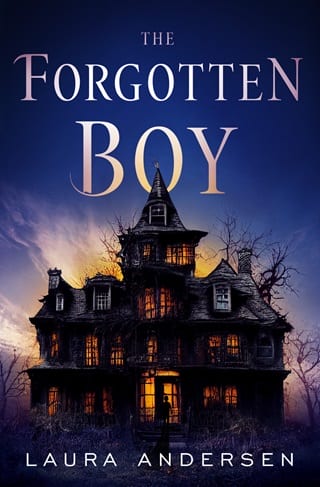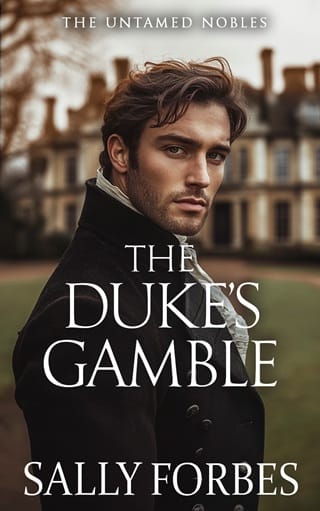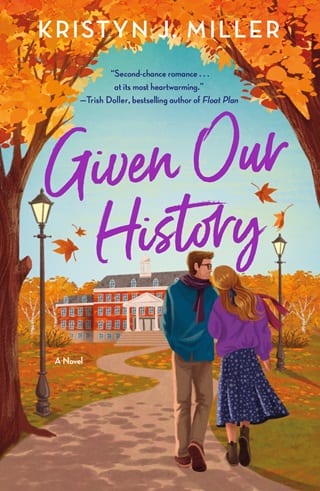Chapter Nine
CHAPTER NINE
JULIET 2018
After Rachel's visit, Juliet decided to create a schedule for herself. That was the problem with spending months without a job. As an adjunct history professor for the last three years, her schedule had changed with every new semester, but the basics had remained the same. Getting up early, doing some yoga, teaching class, attending office hours in a squashed corner of whatever space the tenured professors allowed, grading papers, prepping for the next day's classes, eating dinner with Duncan on the nights he came home, and going to bed. When doctor's visits began creeping into her life with depressing regularity—even in the aftermath of three miscarriages in two years—Juliet had clung to the structure of her days.
For months now, she'd hardly been able to tell the days apart, broken only by her parents' insistence that she see a therapist weekly. And though Juliet had gone simply because resisting would have taken too much energy, slowly she had begun to pick up the various threads of daily life.
"Start small," her therapist had said. "Take a shower every day. That's all you have to do for now."
Showering had been followed by getting dressed, then leaving her bedroom during daylight hours. Instead of watching Parks and Rec , pick up a book. Instead of lying on the couch, do stretches for ten minutes.
Clearly, it had worked well enough to get her here. Now that she was here, Juliet didn't want to lose her momentum. She didn't want to just drift anymore. She wanted to accomplish things. And the therapist's stepping-stone process had shown her the value of a schedule.
So … split each day between cleaning and organizing the many rooms of Havencross, and doing the research needed for her dissertation. She would aim for a seventy/thirty split at first, but if things went smoothly in the house she could spend more time writing as she went along. And she needn't feel guilty, because a large part of her job was simply to be at Havencross through the winter to ensure there were no structural disasters or opportunistic thievery. It's not as though they had her keeping a timesheet.
They meaning the law firm who represented the hotel investors, which meant in practice Nell Somersby-Sims. While she was being so productive, Juliet sent off an email to Nell with a list and photographs attached of the various valuable items she thought would be worth selling, and a couple questions about heating and water supply.
She added one last question after dithering back and forth: Do you have any paperwork on the previous ownership and/or history of Havencross? It was worth a shot. Probably lawyers didn't care about ownership past a certain time—it wasn't as though the inhabitants of the medieval priory were going to suddenly make a claim on the estate.
For two days, Juliet kept strictly to her schedule of early bedtime and early rising and moved through the old army offices in a flurry, tossing out old papers, cleaning decades of grime off desks and chairs and stacking them neatly against walls. With each hour, it became easier to see the house as it had been when a family had lived and loved there, or when dozens of boys had scrambled through corridors between classes and meals.
On Friday afternoon—having called first, despite Rachel's open invitation—Juliet drove her rental car across the narrow bridge then three miles to White Rose Farm. Another reference to the fifteenth century and the North's support of the Yorkist cause, she noted. They seemed to be popping up everywhere.
Winifred Murray opened the door to the low stone farmhouse herself and greeted Juliet with a formal courtesy that made her nervous. Rachel's great-aunt must be in her eighties, and she dressed like Juliet imagined a World War II country-house matron would: tweed skirt, cardigan, and discreet pearls. But the woman's dignity was paired with genuine warmth, and Juliet found it surprisingly easy to talk to her.
Juliet accepted tea, and they sat in a shabby but welcoming room with books jammed onto shelves and piled haphazardly on almost every flat surface. A fire—of course there was a fire, there was probably a nanny upstairs somewhere too—burned cozily, and she thought it one of the most relaxing rooms she'd ever been in.
"Rachel told me you grew up in this house," Juliet said.
"Yes, there have been Murrays at White Rose Farm for hundreds of years. No matter how far we roam, most of us remain anchored here."
"I hope you don't think me unbearably inquisitive, but I'm curious about the family tree. Rachel's surname is Bennett—"
"Why isn't she a Murray?" Winifred anticipated the question. "Goodness, child, never apologize to an old woman for asking questions. There's little I like better than talking about myself and the past. My parents had four children. Two girls and a boy in quick succession, then me nearly a decade later. Sadly, my brother Andrew died on a Normandy beach on D-Day. In the sixties, the farm passed to my sister Ellice and her husband Charles Bennett, then onto their son Josiah, who is Rachel's father. But make no mistake—just because her name is Bennett doesn't mean Rachel hasn't inherited every last bit of Murray love for this farm."
"I could tell," Juliet agreed. "It must be lovely to be surrounded by your own history. My mother's mother is English, but I couldn't even tell you where the rest of my ancestors were three hundred years ago. I think that's one reason I was always drawn to history."
Winifred eyed her intently over her teacup. "Rachel says you're interested in Havencross and the influenza pandemic of 1918."
"I am, yes. Havencross was still a school when you were young, correct?"
"Until 1939. The school had survived one war; no one had the heart to keep it going for a second. And of course, Clarissa Somersby had moved on long before then."
"Did you know her?" Juliet asked.
"She was my godmother. I knew her mostly through letters when I was young, but after the war—World War Two—I often spent summers with her in London or Paris or Rome. She helped me prep for university and encouraged me to think beyond teaching or nursing. Not that those aren't honorable occupations, but I was never suited for caretaking. I worked in the Foreign Office for thirty years instead."
Winifred levered herself up carefully from the chair—only her cautious movements revealed her advanced age—and searched for something on the overfilled bookshelves as Juliet stood. Instead of a book, she selected a silver frame with a black-and-white photograph. She handed it to Juliet, who had stood up when Winifred did.
It was a familiar photograph—two women in ankle-length skirts sitting on the brick garden wall at Havencross. One woman with laughing eyes, and one with defined cheekbones and glossy, dark hair.
"I've seen this," Juliet said. "I found it at Havencross, among Clarissa's belongings."
Winifred pointed to the dark-haired woman. "That is Clarissa, and that"—she pointed to Clarissa's laughing companion—"is my mother. They were the best of friends until the last days of their lives."
"The school nurse," Juliet noted, remembering what Rachel had told her about her great-grandmother. "And that's why you have records about the school and the influenza."
"Indeed. I've already had Noah bring down the most pertinent items from the attic. They're in the dining room."
For a historian, the trove of primary source materials spread out on a twelve-foot-long refectory table was as enticing as alcohol and arguing was to Juliet's ex-husband. She had to restrain herself from attacking it all at once and forced herself to listen to Winifred's overview.
"Here is the school register for 1918, the curricula vitae of the teachers and staff, maps of the dormitory wings with boys' names penciled in, copies of the rules and regulations, standard curricula by year, etc. Also, my mother's diary and casebook, covering November 1918."
Juliet was itching to open that casebook, but she forced herself to pay attention as Winifred indicated a number of newspapers encased in clear plastic. "Local reporting during that last autumn of the war, lots of good background details about domestic and farm life here at the time. And then, of course, all the news about the pandemic, including casualty lists by area and week."
"This is perfect," Juliet said. "You won't mind me coming over to research for a week or so?"
Winifred laughed. "Trying to work here would be a waste, what with three active boys running around. You came by car? I'll have Noah help you load the boxes. Keep them as long as you'd like."
She stepped out for a minute to ask Noah—Juliet assumed he was one of Rachel's sons—and Juliet ran her fingers lightly over the items spread across the table.
When Winifred returned, Juliet asked, "What's this?" while touching the cover of a vintage photo album. When Winifred nodded for her to go ahead, she opened it to find not photographs, but newspaper cuttings.
LOCAL BOY MISSING IN STORM
DOZENS COMB THE WILDERNESS IN SEARCH OF MISSING CHILD
SIR WILFRED SOMERSBY OFFERS REWARD FOR NEWS OF SON
SHOE LOCATED ON RIVER BANK; THOMAS SOMERSBY PRESUMED DROWNED
Juliet looked at the dates—all 1907. If she remembered correctly, Sir Wilfred had been Clarissa Somersby's father, which meant the lost boy had been her brother. This had not been one of the—admittedly few—stories her mother had passed on.
"Is this where the Havencross ghost story comes from?" asked Juliet.
"Oh no, the ghost sightings go back much further than Thomas. I think somewhere there's a monograph that attempted to collate all the sightings, but I couldn't locate it offhand. I'll keep an eye out. But no, the Forgotten Boy"—Winifred capitalized the phrase with her voice—"goes back centuries. Perhaps all the way to the Wars of the Roses."
"That's what Rachel mentioned. But surely not really Richard the Third and his nephews?"
Winifred shrugged. "Who knows? There have never been any credible accounts of their disappearance. The North was always Richard's power base. Who's to say the boys didn't end up here—maybe to be quietly killed, maybe on their way to being smuggled out of the country?"
Juliet didn't believe it—or at least, she didn't believe anyone would ever prove it. It was just another in a long line of centuries' old rumors and legends. Besides, the Havencross ghost references were to a single boy, not brothers.
Next to her, Winifred straightened and said, "If you want to know more about the ghost, you should ask Noah. He's got a story. And here he is now. We'll just pack up these papers and he'll get them in your car for you."
Juliet turned, prepared to greet Rachel's son with a friendly smile. But Noah could not possibly be her son. Her brother, she guessed. He was in that indeterminate age between midtwenties and midthirties, his hair a common shade of light brown. He had a quick step that brought him to Juliet with outstretched hand before she'd recovered from her surprise.
"Noah Bennett. It's awfully nice of you to entertain Aunt Winnie for us." But the teasing was good-humored and made Winifred roll her eyes as she might at a teenager.
"All the pleasure is on my side," Juliet said, wincing inwardly at how artificial she sounded. "I am truly interested, I mean. In Havencross. And I need something to do during the long winter nights."
She was babbling like an idiot. Duncan had always told her she should think about how she presented herself in professional settings. Not that this was professional. Nor was it personal. What exactly was this?
Up close, Noah Bennett's eyes were hazel-green, with the kind of long lashes that women always envied on men. At least he was polite enough not to draw attention to her awkwardness. He merely shook her hand, then helped his great-aunt with the papers and boxes.
When all had been secured and she'd bid Winifred Murray goodbye, Juliet directed Noah to her car.
He deposited three boxes on the back seat. "You sure you don't want me to follow you and help unload?"
"If I can't manage three boxes, then I should hardly be left in charge of Havencross on my own," she said.
"You know you can ring the farm anytime if you need, well, anything. You've met Rachel. She's got enough energy to run a small power plant. And you've got my number, I think."
"I don't—"
"Should be on the information the solicitors left for you. My surveying company did some work around Havencross when the investors were looking to buy. Mine is the contact number in case of fire or flood, that sort of thing."
"Oh, right."
He hesitated, one arm resting against the car's back window. "In fact, they thought it a good idea if I dropped in every week or so and checked things over. Heating, plumbing, you know. Preventing problems beforehand. I'm based in Newcastle, but since I'm visiting home this weekend anyway, I could come by tomorrow?"
Juliet didn't recall anything about weekly checks from surveyors. Could it be Noah simply wanted to see her? "Yes, of course. Anytime."
With a pat to her car roof, as though seeing off a busload of kids, Noah said, "One o'clock, then. See you."
Ghosts , she thought as she drove away from White Rose Farm. I was expecting ghosts. And the flu. And Clarissa Somersby. I was not expecting a man with beautiful eyes and a sexy accent who makes me want to forget that I thought my life was over.
 Fullepub
Fullepub 



